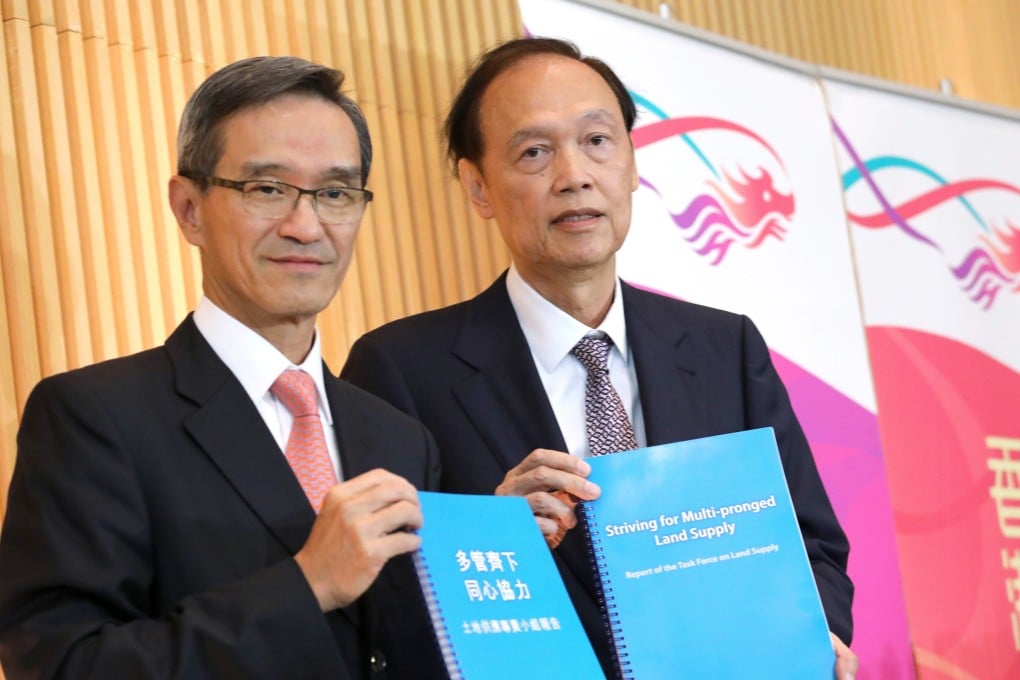Hong Kong land supply task force cites public support for massive reclamation and use of agricultural sites
- Group presents long-awaited findings after public consultation, selecting eight of 18 options, including building on brownfields and Fanling golf course
- Reservations expressed over developing country parks

A government-appointed task force on Monday unveiled its long-awaited recommendations on ramping up land supply in space-starved Hong Kong, citing “considerable” public support for controversial options such as massive reclamation and using agricultural sites.
Presenting the findings of a five-month public consultation on how to plug a supply shortfall that it concluded would be far more than the 1,200 hectares estimated by the government for the city’s housing and economic needs over the next three decades, the Task Force on Land Supply also backed the contentious option of using part of the Fanling golf course for building homes.
“We’re already running out of time,” task force chairman Stanley Wong Yuen-fai said. “The government should go full-speed ahead with all of the recommended options and face the challenges head on.”
The task force settled on eight out of 18 options it assessed, listing them out in no particular order of preference but specifying how much public support there was for each one based on a questionnaire and a telephone survey.
Wong said the eight choices could produce a total of about 3,250 hectares – 2.7 times more than the government’s “grossly conservative” predicted shortfall. Only about 300 hectares of the total would be available within eight years.
The government should go full-speed ahead with all of the recommended options and face the challenges head on